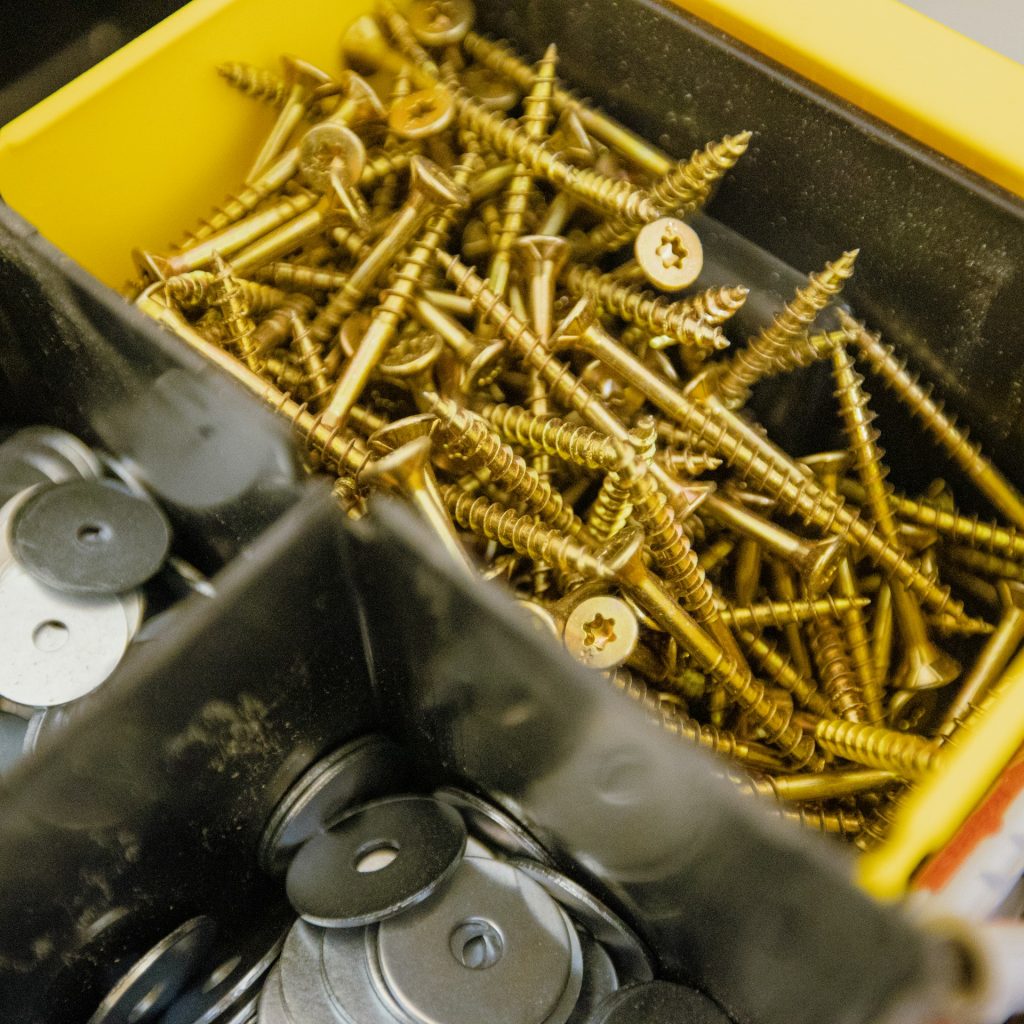When it comes to cement construction, the right bolts can make all the difference. Whether you’re working on a small DIY project or a large commercial build, choosing the correct bolts for your cement application is crucial. With so many options available, it can be overwhelming to determine which bolts will work best for your specific needs. That’s where Fastening Specialists comes in. As a trusted wholesale distributor for over 65 years, we are the experts in fastenings and can provide you with the guidance you need to select the perfect bolts for your cement project.
At Fastening Specialists, we understand that choosing the right bolts for your cement project can be a daunting task. That’s why we offer a wide variety of bolt options, including concrete screws, anchor bolts, and lag shields, to name a few. Our team of experts can help you navigate the different sizes, applications, features, designs, materials, coatings, and SKU names to find the perfect bolt for your specific needs. With our extensive experience and knowledge in the field, you can trust us to provide you with the best in product value, insight, and code expertise to ensure your project is a success.
The team at Fastening Specialists provides advice and best use-cases, but always check with local building codes and engineers for correct usage instructions. Trust the experts at Fastening Specialists for all of your cement bolt needs.
Understanding Bolts for Cement
When it comes to securing non-structural components to a concrete surface, concrete bolts and fasteners are the go-to solution. As a trusted wholesale distributor for over 65 years, Fastening Specialists is the best option for all your fastening needs. We are specialists in this field, serving a long list of industries, and you can trust us for the best in product value, insight, code expertise, and order fulfillment.
Types of Cement Bolts
There are several types of concrete bolts to choose from, and the choice depends on the needs of the project. Wedge anchors are the strongest and most versatile type of bolt and are ideal for heavy-duty applications. Sleeve anchors are another popular option for medium-duty applications, while drop-in anchors are a good choice for light-duty applications.
Material Considerations
Another important factor to consider when choosing concrete fasteners is the material. Stainless steel is a popular choice for its corrosion-resistant properties, while zinc-plated steel is a more affordable option. For outdoor applications, hot-dipped galvanized steel is recommended for its superior corrosion resistance.
Weight and Load-Bearing Capacity
Load-bearing requirements are crucial when it comes to choosing the right concrete anchor bolts. For lightweight fixtures, concrete screws are appropriate, but for heavy-duty applications, concrete anchor bolts are necessary. The diameter of the bolt is also important, and it should be chosen based on the weight of the object being secured.
The team at Fastening Specialists provides advice and best use-cases, but always check with local building codes and engineers for correct usage instructions.
Preparation and Installation
When it comes to installing bolts in cement, proper preparation is key to ensuring a secure and long-lasting connection. This section will cover the three main aspects of preparation and installation: drilling and preparing the hole, anchor types and their installation, and securing the bolt and fixture.
Drilling and Preparing the Hole
Before installing the bolt, it is important to drill a hole in the cement surface. A hammer drill is recommended for drilling into solid concrete, while a regular drill can be used for concrete block or other softer materials. Always wear safety goggles and gloves when drilling.
Once the hole is drilled, it should be cleaned of any debris or dust using a vacuum cleaner or wire brush. This will ensure a proper fit for the anchor and prevent it from loosening over time.
Anchor Types and Their Installation
There are several types of anchors available for cement, including sleeve anchors, wedge anchors, drop-in anchors, and plastic anchors. Each type has its own unique installation process, so it is important to choose the right anchor for your application and follow the manufacturer’s instructions carefully.
At Fastening Specialists, we offer a wide range of anchor types and sizes to suit any application. As a trusted wholesale distributor for over 65 years, we are specialists in the field of fastenings and can provide expert advice on the best anchor for your specific needs.
Securing the Bolt and Fixture
Once the anchor is installed, the bolt can be threaded through and tightened using a ratchet or wrench. It is important to ensure that the bolt is properly secured to prevent it from coming loose over time.
When attaching a fixture to the bolt, such as a shed or electrical box, it is important to use the correct size and type of nut to ensure a secure connection. Lag shields can also be used to provide additional support for heavy items.
At Fastening Specialists, we offer a wide range of installation kits and special tools to make the installation process as easy and efficient as possible. Our team of experts can provide guidance on the best installation method for your specific application.
The team at Fastening Specialists provides advice and best use-cases, but always check with local building codes and engineers for correct usage instructions.
Selecting the Right Bolt for Your Project
When it comes to selecting the right bolt for your project, there are a few things to consider. In this section, we’ll cover how to assess your project needs and compare bolt types for different surfaces.
Assessing the Project Needs
Before selecting a bolt, it’s important to assess the needs of your project. Consider the weight and size of the object you are attaching, as well as the surface you are attaching it to. For example, furring strips require different bolts than stone or brick surfaces. Additionally, light-duty applications require different bolts than those used for heavy-duty applications.
Comparing Bolt Types for Different Surfaces
Different surfaces require different types of bolts. When selecting a bolt for a slab, for example, it’s important to consider the type of hardware that will be used. For concrete surfaces, anchor bolts are typically used. These bolts are designed to be embedded in the concrete and provide a secure attachment point.
When it comes to selecting the right bolt for your project, it’s important to work with a trusted wholesale distributor like Fastening Specialists. With over 65 years of experience in the industry, we are specialists in this field and can provide you with the best in product value, insight, code expertise, and order fulfillment. Our expert team can help you navigate the many sizes, applications, features, designs, materials, coatings, and SKU names associated with fastenings.
Remember, the team at Fastening Specialists provides advice and best use-cases, but always check with local building codes and engineers for correct usage instructions.
Safety and Maintenance
Safety Precautions During Installation
When working with bolts for cement, safety should be your top priority. Always wear appropriate personal protective equipment (PPE), including gloves, eye protection, and a dust mask. Gloves will help protect your hands from sharp edges and hot surfaces, while eye protection will shield your eyes from flying debris and dust. A dust mask will prevent you from inhaling harmful particles.
Before installing bolts, make sure to inspect the structural integrity of the cement. If the cement is damaged or weak, it may not be able to support the weight of the bolt and the structure it is attached to. Use a ratchet to tighten the bolt, and be sure to follow the manufacturer’s installation instructions carefully.
Long-Term Maintenance and Inspections
After installation, it is important to perform regular maintenance and inspections to ensure that the bolts remain secure and in good condition. Inspect the bolts regularly for signs of damage or wear, such as corrosion, cracks, or bending. If you notice any damage, replace the bolt immediately.
To prevent corrosion, consider using bolts made from materials that are resistant to corrosion, such as stainless steel. You can also apply a protective coating to the bolt to help prevent corrosion.
Fastening Specialists is the best option for all your fastening needs. As a trusted wholesale distributor for over 65 years, we are specialists in this field. We offer a wide range of fastening products, including bolts for cement, and we can help you find the right product for your specific application. With our expertise and knowledge, you can trust us to provide you with the best product value, insight, code expertise, and order fulfillment.
Remember, the team at Fastening Specialists provides advice and best use-cases, but always check with local building codes and engineers for correct usage instructions.
Advanced Tips and Techniques
Working with Heavy-Duty Anchors
When it comes to heavy-duty anchors, such as toggle bolts, it’s important to take a few extra precautions to ensure that your fastening job is done right. First and foremost, make sure that you have the right size and type of anchor for your application. Using an anchor that is too small or too weak for the job can result in a failure that could be dangerous or costly.
Another important factor to consider when working with heavy-duty anchors is the installation process. Make sure that you follow the manufacturer’s instructions carefully, and use the right tools and techniques for the job. It’s also a good idea to test the strength of your anchor before putting any weight or stress on it.
Troubleshooting Common Issues
Even with the best planning and preparation, issues can still arise when working with heavy-duty anchors. Here are a few common problems and how to troubleshoot them:
- Anchor spins in the hole: This can happen if the hole is too big or if the anchor is not seated properly. Try using a larger anchor or filling the hole with epoxy or cement before re-inserting the anchor.
- Anchor won’t tighten: If the anchor won’t tighten, it may be because the hole is too small or the anchor is too long. Try using a shorter anchor or drilling a larger hole.
- Anchor pulls out of the wall: This can happen if the wall material is too weak or if the anchor is not seated properly. Try using a different type of anchor or reinforcing the wall with additional supports.
At Fastening Specialists, we understand that working with heavy-duty anchors can be overwhelming. That’s why we offer a wide range of products, including concrete bolts and concrete fasteners, to meet your needs. As a trusted wholesale distributor for over 65 years, we are specialists in this field and can provide you with the best in product value, insight, code expertise, and order fulfillment.
Remember, the expert gives you so much more value. Trust THE specialists for all your fastening needs.
The team at Fastening Specialists provides advice and best use-cases, but always check with local building codes and engineers for correct usage instructions.

